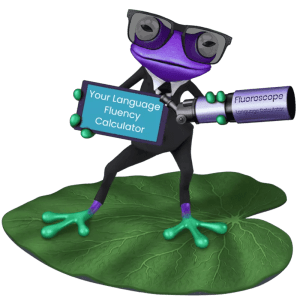English for Business: The Importance of Strong English Communication Skills in Globalized Business & Entrepreneurship

English is the universal language of business, and it is essential for anyone looking to build a career in global trade. English is the language of international communication, and it is used by organizations and businesses all over the world. English is also the internet’s universal language, and it is estimated that more than half of all web content is in English. This makes business English an essential tool for anyone looking to conduct business by phone, or find information online. In addition, English is the language of education, and many of the world’s top universities teach in English. As a result, English is a critical language for anyone seeking to gain a competitive edge and climb the corporate ladder in the global business world.
Why Is English So Important in Global Business?
1. English is the language of business and communication worldwide.
English is also the language of science, medicine, and technology. English is the language of education, and it is used by students and scholars around the world. Business English is an important tool for communication, and business by phone gives people access to a global community of English speakers. English is the language of business and communication worldwide.
2. Competitive pressure on firms and employees is global today
In a world where English is the lingua franca, firms and employees who are not proficient in English face a competitive disadvantage. Consequently, there is a growing demand for English-language training, both for individuals and for businesses. English-language training can help employees to communicate more effectively with clients and colleagues, and to understand complex business plans.
3. English is the language of the internet.
English is the most widely taught second language in the world. As a result, English has become the lingua franca of the internet, enabling people from all corners of the globe to communicate their business by phone. While there are other languages used online, business English speakers are by far the most prevalent.
4. English is the language of business culture.
English is the language of popular culture, and understanding it can help businesses to connect with consumers. While English is not the only language used in business negotiations, it is increasingly becoming the lingua franca of the workplace. As a result, businesses that invest in business English language training can reap substantial rewards.
5. M&A integration across national boundaries is routine today.
With the rise of multinational corporations, M&A integration across national boundaries is routine today. English is the official language of business, and English for business plans have become an essential part of the global economy. The ability to communicate effectively in English is essential for success in business negotiations at networking events.
6. Globalization of tasks and resources.
This dependence on English can be attributed to globalization. Globalization has resulted in the outsourcing of tasks and resources to English-speaking countries. This has led to an increased demand for English-language skills, both among businesses and individuals. English-language skills are seen as essential for climbing the corporate ladder and collaborating with colleagues from around the world. These people and resources could not have been found without business by phone and zoom calls.
7. Globalization of the workforce with remote jobs becoming commonplace if not in many situations preferred.
English has become the official language of business and entrepreneurship due to its wide acceptability and global reach. English is used as a common language among employees from different countries who may not share a common first language. In addition, English is the preferred language for conducting international business negotiations.
The Importance of Good English in Business
1. It shows your willingness to go beyond basic business standards.
By taking the time to learn English for business and entrepreneurship, you are demonstrating your commitment to excellence in all areas of your company. In today’s global economy, English is the universal language of business. By investing in English for business activity, you are ensuring that your company can compete at the highest level at networking events. English for business contexts is an essential part of any company’s success and climbing the corporate ladder. So get practicing before your upcoming events today!
2. Develops clarity in business writing and communications.
Students who study English for business purposes often find that their ability to communicate clearly and concisely improves dramatically. This is especially true for those who have English as a second language. By learning how to express themselves more precisely, students can avoid misunderstandings and ambiguity in both written and oral communications.
3. It will help you to communicate better with your customers, colleagues, and superiors.
English is the universal language of business, which means that if you want to climb the corporate ladder, it’s essential that you have a good command of the language. English can help you to communicate more effectively with your customers, colleagues, and superiors. You need to learn how to write business emails, make presentations, and hold meetings with English speakers. Try seeking out an American language program to help you learn the basics first.
4. It is essential for delivering presentations and speeches in person or during video calls and meetings.
English is essential for delivering presentations and speeches in person or during video calls and meetings. English is the language of business, and it is crucial to be able to communicate effectively to succeed in a global market. English is also the most common second language, so it is vital to be able to speak English fluently to be understood by a wide audience. Delivering speeches in person is a hands-on project where fluent English is necessary.
5. Strong Business English Skills will Boost your salary and career advancement opportunities.
Companies are always looking for employees who can communicate effectively in English. If you want to advance your career, learning English is a smart investment. English skills will give you an edge over other candidates, and they will help you to negotiate better salaries and benefits. If you want to achieve success in business activity, learning English is essential.
6. Proper English pronunciation always makes a good first impression.
When communicating with a native speaker client or customer, it is important to sound confident and competent. Unfortunately, many non-native English speakers are unsure about how to properly pronounce some of the most common English words. As a result, they may avoid using certain words altogether or substitute them with others that they feel are more familiar. While this may be adequate in casual conversation, it can create difficulties in contexts requiring conference call skills.
7. It allows you to travel for business and communicate effectively in meetings.
One of the benefits of English for business is that it allows you to travel for business activities. English is the language of business, and as such, it is essential for doing business in many parts of the world. When you can speak English phrases fluently, you open up a whole new world of opportunities for business travel and international networking events. Traveling is a hands-on project, and English can help you every step of the way.
8. Opens up opportunities for a global career with traditional and remote employment positions.
English for business is the perfect way to start your global career. English is the language of business and is essential for anyone looking to enter the workforce. By studying English for business, you will develop the skills and knowledge necessary to succeed in a variety of traditional and remote employment positions. This could include work online or even a more hands-on project.
The Negative Effects of Poor English on your Business and Career
1. Can waste time, cause errors, and create frustration.
For example, imagine you’re trying to explain a complex concept to a client. If your business English isn’t clear, you’ll likely have to spend more time rephrasing and clarifying your points. This not only wastes valuable time, but it can also lead to frustration on both sides. This could result in planning meetings more than necessary. To avoid this, find an American language program that will lay down the fundamentals first with timely course offerings.
2. It may cost you a client or even your job.
Unfortunately, many people still make the mistake of underestimating the importance of the proper, mother tongue English. While it’s certainly true that poor grammar will not necessarily sabotage your career, it can certainly be a hindrance. Improper grammar can reflect poorly on your company. In some cases, it can even cost you a client or a job.
3. It can make you appear unprofessional and unprepared.
If you’re planning meetings or upcoming events with a potential native speaker client and start spouting off in broken English, it will not inspire a lot of confidence. Poor language skills can make you appear unprofessional and unprepared, two qualities that are sure to turn off any potential client or business partner. Of course, you don’t have to be a native speaker to appear competent and polished- simply taking the time to learn the basics of grammar and avoid common mistakes can go a long way.
4. It could make it challenging to build relationships of trust.
Whether we’re networking online or meeting someone in person, the ability to communicate clearly and effectively is essential to building relationships of trust. However, poor communication and grammatical structure can quickly undo all of our hard work. It can also be a challenge if our client is using complicated idioms instead of more straightforward language. If we’re unable to express ourselves clearly, we may come across as unfocused or confused, and others may not take us seriously.
5. Can lead to miscommunication and misunderstandings.
In business contexts, for example, emails and other documents that are poorly written can cause confusion and frustration among busy professionals. To avoid these problems, it is important to take care when writing business English phrases. Make sure to proofread your work for typos and grammatical errors. If you are not confident in your ability to write in business English, consider planning meetings with online courses, a tutor, or a bilingual friend.
6. You may find yourself at a disadvantage in the marketplace.
Poor English communication style can lead to a disadvantage in the marketplace. This makes it difficult to communicate with native-speaker customers and business partners. It can also make it difficult to understand technical manuals and other important documents. Furthermore, broken English phrases can lead to errors in communication, which can result in lost business development.
7. Misspellings and grammatical errors in marketing materials.
For example, if a potential customer sees an advertisement with numerous misspellings and grammatical errors, they may assume that the company is not professional or competent. In contrast, if the same advertisement is well-written and error-free, it will create a much more positive impression. When it comes to marketing materials, therefore, it is important to take the time to proofread and edit carefully. It also doesn’t hurt to find timely course offerings for what we are struggling with if you want to feel like a more effective team player.
8. Difficulty communicating with a global workforce.
With the rise of the internet and global trade, businesses are increasingly doing work with people from other countries. However, if you don’t have a good grasp of the business English language, it can be difficult to communicate with these international business partners and display conference call skills. Poor English can lead to miscommunication and confusion, which can damage business relationships. It can also make it difficult to understand complicated idioms or instructions or documents written in English.
9. Can limit career advancement and earnings potential.
This is especially true in professions that require strong communication skills, such as sales, marketing, and customer service. In these fields, individuals who are not fluent in business English may be passed over for promotions or may be paid less than their business partners. Additionally, poor English communication style can make it difficult to understand work on an intermediate level or to participate in business negotiations as a team player. As a result, individuals with poor business English skills may find themselves at a disadvantage in the workplace.
10. Can create a negative impression of an individual’s competence.
Unfortunately, many people still underestimate the importance of proper grammar and punctuation. In a survey of hiring managers, nearly 60% said they would be less likely to hire a candidate if they found errors in their resume or cover letter. Furthermore, almost 40% said they would view a mistake as a sign of laziness or lack of attention to detail. With so much at stake, it is essential to take the time to proofread your work and seek timely course offerings in English. Otherwise, you risk making a poor first impression and losing out on business development.
By taking these steps, you’ll be well on your way to perfecting your English for your upcoming event.
Frequently Asked Questions:
There are a few key things to keep in mind if you want to improve your English for business presentations. First, focus on using clear and simple language. Avoid jargon or industry-specific terms that your audience might not be familiar with. Second, make sure your grammar is correct and your sentences are properly constructed. This will help to ensure that your message is communicated effectively. Finally, practice your delivery ahead of time. This will help you to speak confidently and project a professional image.
It is also important to ask what type of business presentation you are doing, and how you can tailor your language towards that theme, these may include:
Finance business presentations
International business presentations
Corporate business presentations
Nonprofit business presentations
By following these tips, you can improve your English for business presentations and make a positive impression on your audience.
Body language is an important part of communication, but it is often misinterpreted. While body language can be helpful in conveying meaning, it should not be relied on as the sole method of communication.
This is especially true when communicating in a second language, as body language can be highly culture-specific. For instance, what might be interpreted as a friendly gesture in one culture could be seen as offensive body language in another culture. It is important to be aware of these cultural differences when communicating with people from other countries. In addition, body language should not be used to replace verbal communication. This can create misunderstandings and make it difficult to resolve disputes.
When communicating in English, it is best to use a combination of body language and verbal communication to ensure that your message is clear and accurate.
In today’s business world, it’s more and more common to work with virtual teams – teams that are spread out across the globe and communicate primarily over email, video conferencing, and other digital channels. If you find yourself in this situation, there are a few things you can do to ensure that your virtual team meetings are productive and effective:
First, make sure everyone on the team is on the same page as far as communication tools and protocols. Everyone should be using the same platform for video conferencing, for example, and should know how to use all of its features. It’s also important to set some ground rules for virtual meetings – for example, who will be speaking when, and how questions will be answered. Once everyone is on the same page, virtual meetings will run much more smoothly.
Second, take advantage of body language and nonverbal cues when communicating virtually. Although you can’t see each other in person, it’s still important to make eye contact and use other forms of body language to convey your message. Additionally, try to use clear, concise language when speaking – your virtual teammates may not be native English speakers either, so they may have difficulty understanding complicated jargon or long-winded explanations.
Finally, remember that virtual communication is often less personal than face-to-face communication. If you need to give feedback or deliver bad news, take extra care to do so in a way that is respectful and considerate. With a little bit of effort, you can ensure that your virtual team meetings are productive, efficient, and successful.
When it comes to English language proficiency, the workplace can be a demanding environment. To be successful, you need to be able to communicate effectively in a variety of work-related scenarios. Scenario planning is a great way to prepare for different work scenarios. By thinking through various potential scenarios, you can anticipate the challenges you might face and develop effective strategies for dealing with them.
In addition, scenario planning can help you identify any gaps in your English language skills and focus on areas that need improvement. By taking the time for scenario planning, you can increase your confidence and improve your chances of success in the workplace.
When you are a team player, you are an important part of a group that works together to accomplish a common goal. You cooperate with others, share information and ideas, and support one another. To be an effective team player, you need to be able to communicate effectively in English. This means being able to understand and be understood by other team players. It also involves being able to give and receive instructions clearly. When everyone on the team is able to communicate effectively, it makes it much easier to work together towards a common goal. So if you want to come across as a team player, brush up on your English communication skills!
If you’re looking to perfect your English for an upcoming event, there are a few things you can do to make sure you’re prepared:
– Brush up on your grammar and vocabulary before this upcoming event. Review key rules and make sure you understand how to use them correctly.
– Practice speaking and pronunciation. If you can, find a native English speaker to help you with this.
– Try to immerse yourself in the language as much as possible before the upcoming event.
– Listen to English-language podcasts before the upcoming event, watch English-language movies and TV shows, and read books or articles in English.

Learn from History – Follow the Science – Listen to the Experts
Are you looking for English courses on topics that interest you? Do you want to learn this essential business language with plenty of topics to choose from?
What’s the one thing that makes LillyPad so special? Lilly! She is a personal English tutor for non-native speakers, and has people talking all over the world! Lilly makes improving your English communication style easy. With Lilly, you can read in four different lesson modules, and you can read just about anything you love. And learning English phrases with Lilly, well that’s what you call liberating!
For learners of all ages striving to improve their English communication style, LillyPad combines the most scientifically studied and recommended path to achieving English fluency and proficiency with today’s most brilliant technologies! These courses on topics relating to grammar and vocabulary will have you speaking fluently in no time!
Additionally, the platform incorporates new ways to learn English phrases, including goal-setting lesson modules, essential tracking & reporting, gamification, anywhere-anytime convenience, courses on topics that interest you, and significant cost savings compared to traditional tutoring lesson modules.
At LillyPad, everything we do is focused on delivering a personalized journey that is meaningful and life-changing for our members. LillyPad isn’t just the next chapter in English learning…
…it’s a whole new story!
Do you want to improve your English? Visit www.lillypad.ai.
Follow us on Facebook or Instagram!

Bethany MacDonald
Bethany MacDonald has contributed articles LillyPad.ai since 2020. As their Blog Lead, she specialises in informative pieces on culture, education, and language learning












